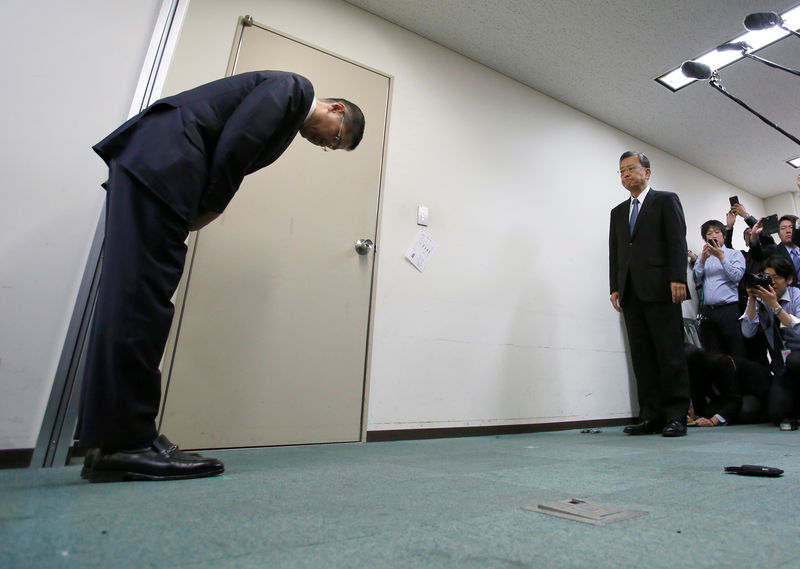YOKOHAMA (Reuters) - Nissan Motor Co Ltd (T:7201) on Friday blamed a lack of trained staff for improper final inspections at its car plants in Japan for over 20 years, and said it would increase the number of inspectors as part of a plan to improve compliance.
Last month, Nissan issued a recall for 1.2 million vehicles - including all passenger cars produced for sale in Japan over the past three years - after discovering that uncertified inspectors were for decades signing off on vehicle checks required by the transport ministry for cars sold in the country.
Nissan said an investigation found that "nonconforming final inspections" were the norm by the 1990s at the plants, and could even have existed since 1979 at its Tochigi plant.
The company did not give proper consideration to inspections when cutting staff, it said in a report outlining the findings as well as countermeasures that it submitted to the government.
"Headcount reduction rates allocated to each plant applied uniformly across the whole plant, and special consideration was not given to secure final inspectors," it said.
"Therefore, the plants had a shortage or no surplus in the number of final inspectors."
It said it would increase the total number of final inspectors by about 85 by the end of March, an increase of over 20 percent from current levels.
Production lines at some plants have been slowed to around 40 percent to 80 percent of their usual speeds while staffing is expanded, the company said, adding that there could be some impact on exported vehicles.
The misconduct itself does not affect export vehicles, and all required safety checks were performed on the affected cars. But the scandal has tarnished Nissan's brand at home, and along with a data falsification scandal at compatriot Kobe Steel Ltd (T:5406), has raised questions about compliance and quality control at Japanese manufacturers.
Nissan Chief Executive Officer Hiroto Saikawa said the main cause of the problem was not a staff shortage per se, but rather a disconnect between rules and reality on the ground.
"From the shop floor standpoint, there was a gap between the reality and the requirements for certifying final inspectors, which we didn't resolve, and which resulted in non-compliance," he said.
He said he will return part of his compensation this year because of the scandal, although he declined to unveil an amount. He said he would continue in his role to ensure countermeasures are carried out and Nissan regains customers' trust.
Nissan expects the recall alone will cost it 25 billion yen ($222.10 million), and last week shaved its full-year operating profit forecast as it braces for the fallout at home.
The company said on Friday that it was assigning a new corporate vice president to oversee all plants in Japan, and increasing the number of quality assurance managers as well as managers in charge of final inspections at each plant by one to a total of two each.
Domestic rival Subaru Corp (T:7270) has also been hit by compliance issues after it also admitted that it had not been following proper inspection issues going back around 30 years. As a result, it plans to recall around 400,000 cars sold in Japan.

($1 = 112.5600 yen)